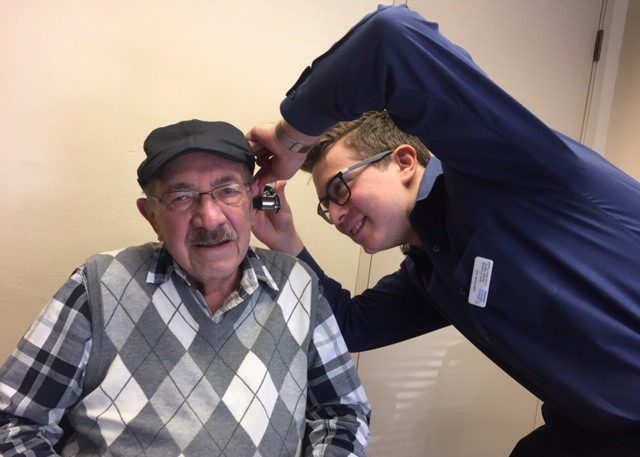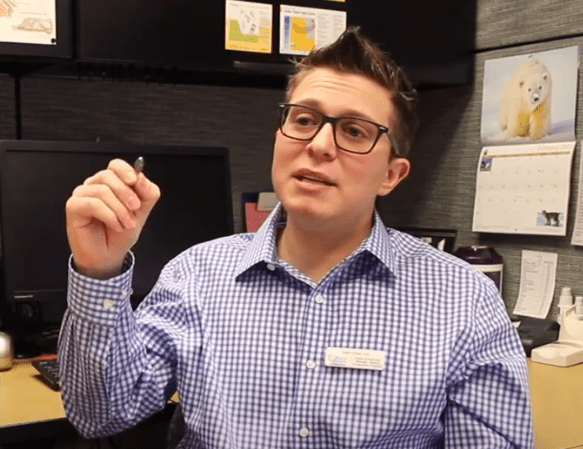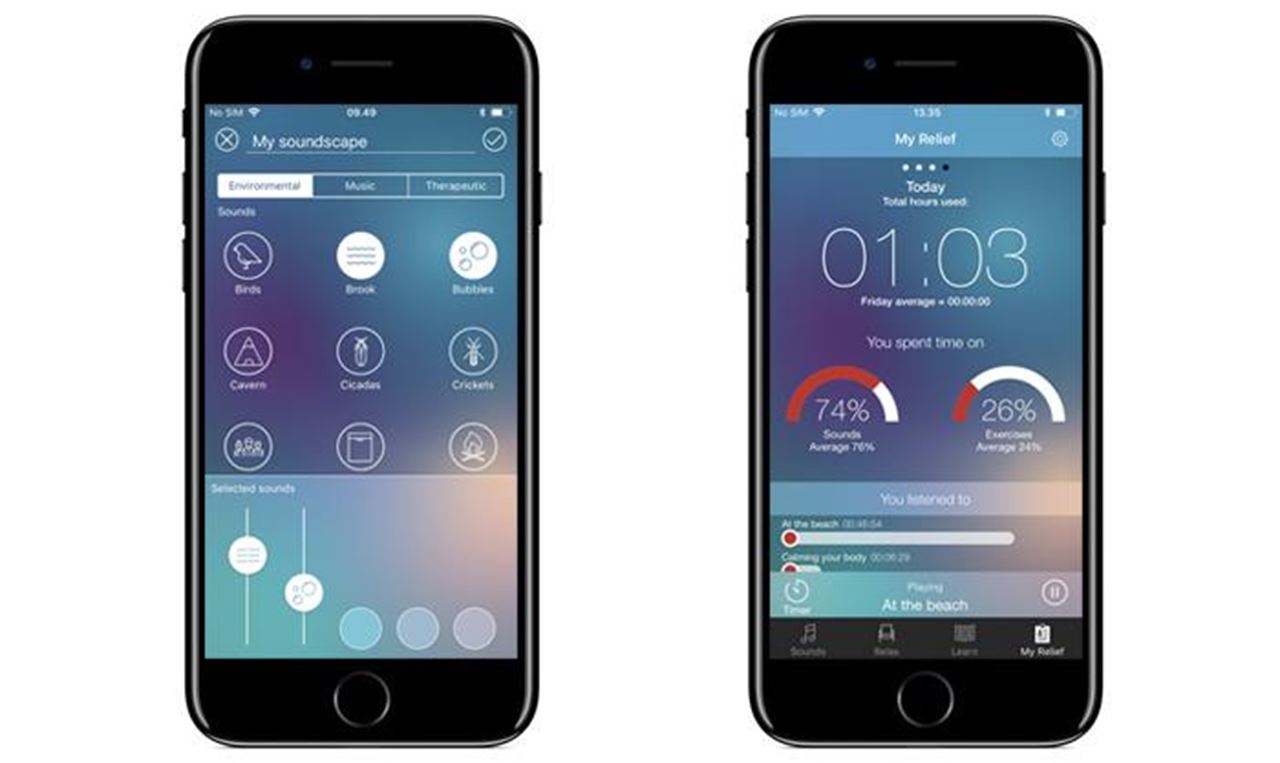By Dr. Caleb Kronen, AuD – Clinical Audiologist
What is Tinnitus?
Some people describe tinnitus as a phantom ringing, hissing, or roaring sound in their ears. Tinnitus is abnormal activity in the auditory system and can have adverse effects on your quality of life.
While tinnitus can be caused by other things, hearing loss is the number one reason why someone experiences tinnitus. Tinnitus is a symptom, not a disease.
Assessing Tinnitus

The Marion Downs Center checks your hearing through state-of-the-art evaluations where we check the sensitivity of your ears across the frequency/pitch range.
We conduct a unique test called high frequency audiometry or ultra-high frequency audiometry. By testing high frequencies or pitches beyond the speech range, we are able to tell if there is damage to any part of your ears. Most audiologists do not test ultra-high frequency because it doesn’t provide much information for for hearing aids, but for tinnitus – ultra-high frequency testing can be very valuable.
We also do tinnitus matching where we try to match the pitch and the loudness of your tinnitus to help us better treat it later.
Tinnitus Triggers

Some people say to us “well I only really get tinnitus when I’m really stressed out or when it’s really quiet or maybe the day after I didn’t sleep well.”
Tinnitus can be exacerbated or amplified by certain things. For some people that’s caffeine. For other people, it might be having a glass of wine. Stress, cigarettes, or lack of sleep can actually ramp up people’s tinnitus.
Tinnitus can cause problems such as experiencing anxiety or getting sleep at night. It can impact speech understanding depending on the severity. It’s really important to think about what triggers your tinnitus and how you can modify your lifestyle to reduce those impacts.
Types of Treatments
The main goal shouldn’t necessarily be curing tinnitus, but rather learning how to manage the tinnitus and put it in the back of your mind. 50 million Americans experience tinnitus, but only 12 million end up seeking help from a professional.
We often tell people that the vast majority of individuals who treat their tinnitus experience what’s called suppression. Suppression is a phenomenon when we amplify the sounds around us and the tinnitus is no longer really audible and we are not able to hear it anymore.
Amplifying the sounds around us is like turning on a light switch in a dark room. A candle in a room that’s dark might be really obvious and kind of annoying, say if you’re trying to go to sleep. If you turn the light switch on, that candle is no longer there.
What do we do to treat tinnitus? At the Marion Downs Center, we have several options for you.
Tinnitus Therapy Hearing Devices

Tinnitus therapy devices can actually be quite discrete. Tinnitus therapy devices amplify the sounds around us and can strongly reduce the impact of your tinnitus.
Habituation
We also look at a treatment called habituation. How can we train the brain to filter out the tinnitus?
We get signals all day long that we don’t need – for example the feeling of a watch being on your wrist, the feeling of our clothes, maybe some underlying back pain. Our brains do an excellent job of filtering out unnecessary information and tinnitus can become one of those things that your brain filters out.
Sometimes we need some assistance through devices to train the brain how to do that.
One of these ways is through called tinnitus sound generation or tinnitus sound therapy. By playing a sound and exciting the auditory system at specific frequencies based on your tinnitus profile, we can train the brain to ignore the tinnitus. It doesn’t take a very loud masking sound to drown out the tinnitus and to put it into the background.
Mobile/Phone Apps
If a hearing aid isn’t right for you, there are mobile/phone apps that can produce sound generations and tinnitus sound therapies to mask your tinnitus and retrain your brain.

One such app is called the Resound Tinnitus relief app and is free. You can get it on the apple store the google play store it’s available for both types of devices and it works phenomenally. You can even design your own type of soundscapes to drown out your tinnitus.
There are some really simple ways to reduce your tinnitus – reducing caffeine intake, getting more sleep, and reducing stress in your life. Often those things aren’t necessarily easy to control and may involve support from others in your circle.
If you can be cognizant of those strategies, then you can actually help reduce your tinnitus.
Break the Vicious Cycle with the Marion Downs Center
Here at the Marion Downs Center we are able to help counsel people on how to break a vicious cycle that causes tinnitus to get bad.
The biggest take-home message for many tinnitus patients is to try to not to react to the tinnitus so much, especially if you do a hearing test and we find out that your tinnitus might just be from some age-related or noise-related hearing loss.
Tinnitus can actually be just something that you could easily try to ignore by ignoring it and not reacting to it.
Hearing protection is very important. By wearing hearing protection in loud environments, you can protect yourself from further tinnitus or an increase of your existing tinnitus.
Protecting your ears, modifying your habits, utilizing hearing aid technology or tinnitus sound generators, and meeting with an audiologist to understand what might be causing your tinnitus are all important elements to a healthier, more enjoyable lifestyle
Schedule an appointment with the Marion Downs Center and we can help you figure out a plan to manage your tinnitus and get it under control.
